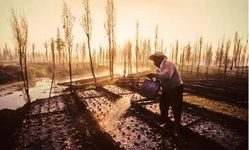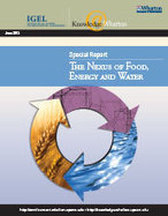Systems Approach and "Nexus" Thinking
|
The Natural Step Toolkits for Sustainability
Helping communities, businesses and individuals take meaningful steps toward sustainability. Please help us accelerate change towards sustainability by sharing our free toolkits. The Natural Step’s Toolkits for Sustainability have been created to share best practices based on our work with thousands of corporations, municipalities, academic institutions and not-for-profit organizations around the world. Our partners and clients have proven that moving strategically toward sustainability leads to innovation, new opportunities, reduced costs, and dramatically reduced ecological and social impacts. Sustainability Primer: Step by Natural Step USA version | English French |

Can 'nexus thinking' alleviate global water, food and energy pressures?
With demand for the world's three most precious resources only set to grow, a new approach must be put into action Tim Smedley Guardian Professional, Friday 25 January 2013 With the world population growing at a rate of around 80 million people a year, it is estimated that by 2030 the world will need 30% more water, 40% more energy and 50% more food. That's not just to feed, water and power the new arrivals, but also those currently living "off grid" in developing countries as they rise out of poverty. Water, food and energy nexus debates - live broadcast The Guardian and SABMiller bring you a day of online debates discussing how to achieve inter-connected action on water, food and energy 
The Nexus of Food, Energy and Water
From knowledge.wharton.upenn.edu More than one billion people lack access to clean drinking water, sufficient food and electricity. Meanwhile, the global population is growing by some 80 million people every year. By 2030, the nine billion people living on earth will need 30% more water, 40% more energy and 50% more food to survive. Given the complex relationships among all three resources -- the nexus of food, energy and water -- meeting these demands will require thinking in terms of systems, not silos. It will take collaborative approaches that embrace rather than battle natural processes. And it will mean new technologies and approaches to everything from bio-fuels to desalination. This special report, produced in coordination with Wharton's Initiative for Global Environmental Leadership (IGEL), takes a close look at the key issues. Download the PDF here. |